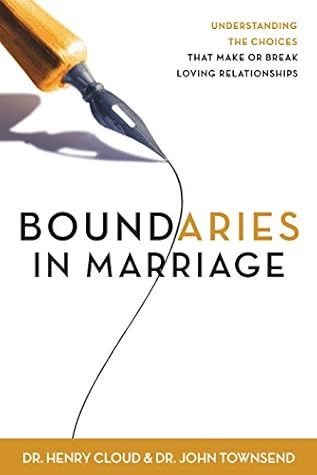Boundaries help us to determine who is responsible for what. If we understand who owns what, we then know who must take responsibility for it. If I could get Joe to see that his reactions were his problem and not Caroline’s, then I could help him to responsible for it, then we are in the driver’s seat of change. For the first time, we are empowered. When Caroline got a sense that she was responsible for the misery she thought Joe was causing, she was empowered to change that helpless, powerless feeling of misery, no matter what Joe was doing. Once she began to take responsibility for her
...more
this presumes that no actual wrong is being done to each other by each spouse. “you’re responsible for your feelings” assumes that you can control your feelings—you can’t. you can control if and how you act upon them, but saying “you’re just responsible for them” means that you have total mastery over your mind and heart; that you’re a fictional samurai master or a Jedi Knight.
as for the presumption that no wrong is being done, this section falls apart when a spouse is confronted with wrongdoing or actual sin (there is, believe it or not, a difference). you wouldn’t tell your wife, “I look at pornography because that’s what men do to satisfy their visual needs and urges, especially when you aren’t around or aren’t willing to get in bed, so you need to be responsible and control your feelings about my porn.” in this scenario, the wife’s feelings of shame and betrayal and loneliness are a direct result of HIS actions, which means HE IS RESPONSIBLE.


